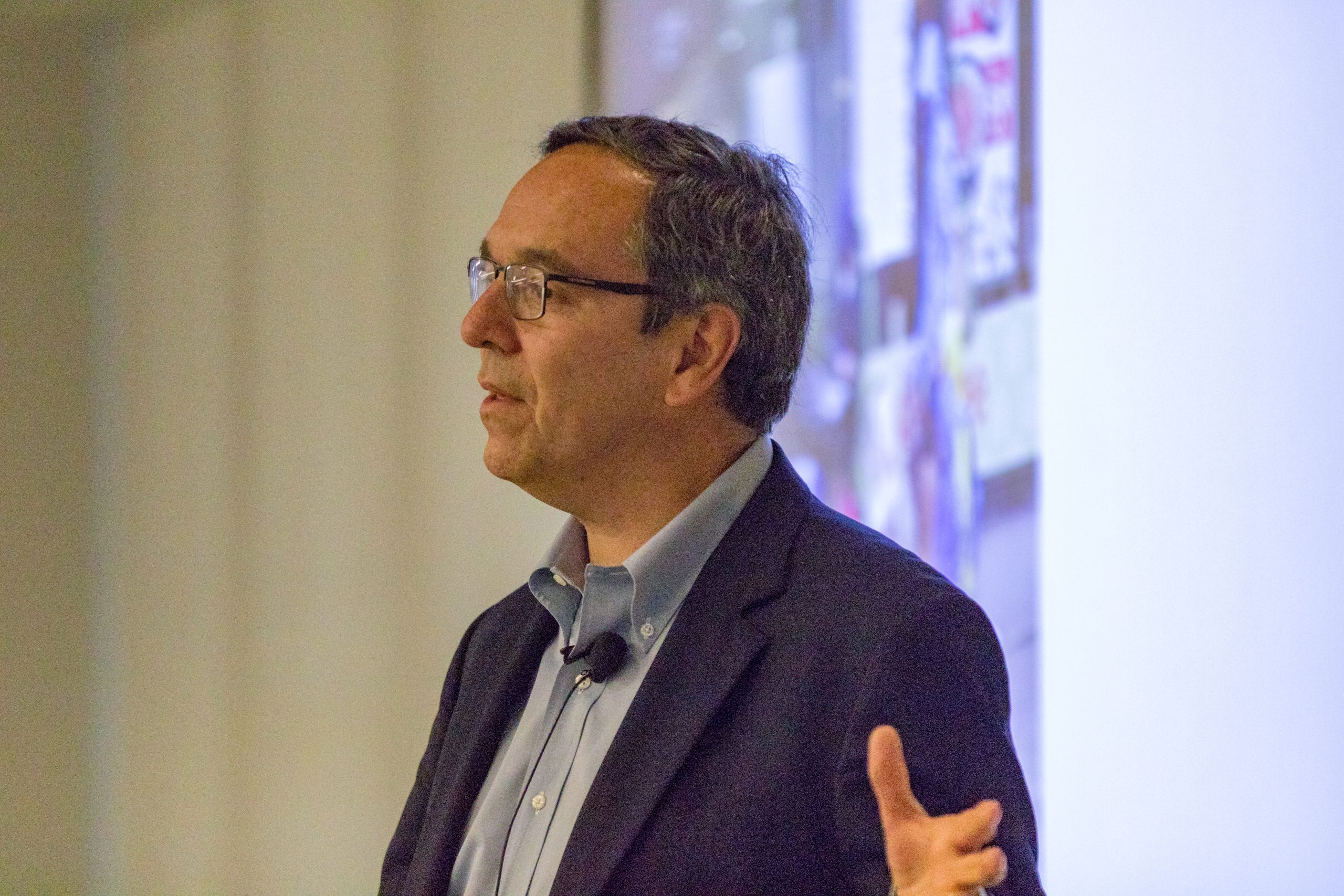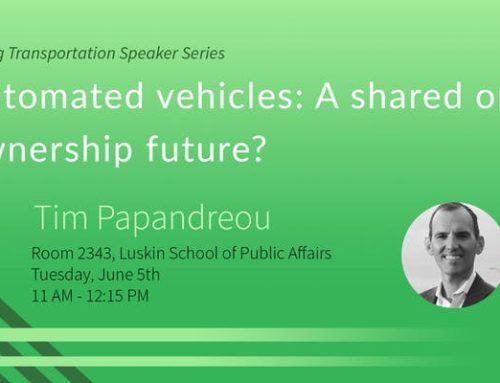The ITS spring speaker series kicked off with one of the world’s most influential urbanists, Gil Penalosa, an advocate for public spaces and sustainable mobility. Cities must meet the challenges of the 21st century through public policy and design that improves the quality of life for all residents, Penalosa argued.
“We need to decide how we want to live,” he told a large crowd of Luskin School students, staff, faculty and community partners.
Penalosa, a graduate of the MBA program at the UCLA Anderson School, is the founder and chair of 8 80 Cities, a nonprofit organization based in Toronto and dedicated to the idea that urban spaces should benefit an 8-year-old or an 80-year-old equally. He also chairs the board of World Urban Parks, an international association in favor of open space and recreation, after getting his start by transforming parks programs as a commissioner in Bogotá.
The groundbreaking programs overseen by Penalosa in Colombia included a weekly event to turn city streets into activity centers for walking, biking, and other activities, which has served as a model for CicLAvia in Los Angeles and similar programs worldwide. Penalosa said that after streets turn into “the world’s largest pop-up park,” people begin to think about how much of their city is usually off-limits.
“All of a sudden we realize that the streets are public,” he said, adding that in a given city, around 35 percent of the total land is occupied by roadways. “We need to be much better at using everything that is public.”
Penalosa, who has consulted for more than 300 cities around the world, urges local leaders to use public space such as libraries and schoolyards for communal activities. He said that “playability” is a feature in urban design — making spaces more welcoming for children opens them up for everyone else as well. Every city should set a goal to have some kind of park within a 10-minute walk of any home, Penalosa said.
“Parks and public spaces are fantastic equalizers,” he said, describing the social integration that takes place during large sporting events, political protests, and smaller exchanges such as children interacting with a sculpture. Penalosa added that public space helps people make friends and live healthier, but it can also promote transit and climate policy goals.
“Safe and enjoyable walking and biking should be a human right,” he said, noting that non-driving transit modes are not just recreational activities but the primary means of transportation for most of the world’s population. As the global urban population has surged — with the number of people living in cities expected to grow from 3.5 billion to 7 billion people over the next four decades — Penalosa believes that policymakers must shift their focus away from accommodating car travel and toward improving quality of life. This means prioritizing human interaction in public spaces by expanding parks, building sidewalks, reducing speed limits to make walking safer, connecting bicycle routes into cohesive grids, and much more.
Penalosa’s talk was presented in partnership with the California Association for Coordinated Transportation (CALACT), a statewide nonprofit association advocating for small transit agencies, rural transportation funding and coordinated mobility programs. The full schedule for the spring speaker series will soon be available on the ITS events page.
This post has been lightly edited from its original version on the website of the UCLA Luskin School of Public Affairs. View additional photos from the presentation in a Flickr album.





